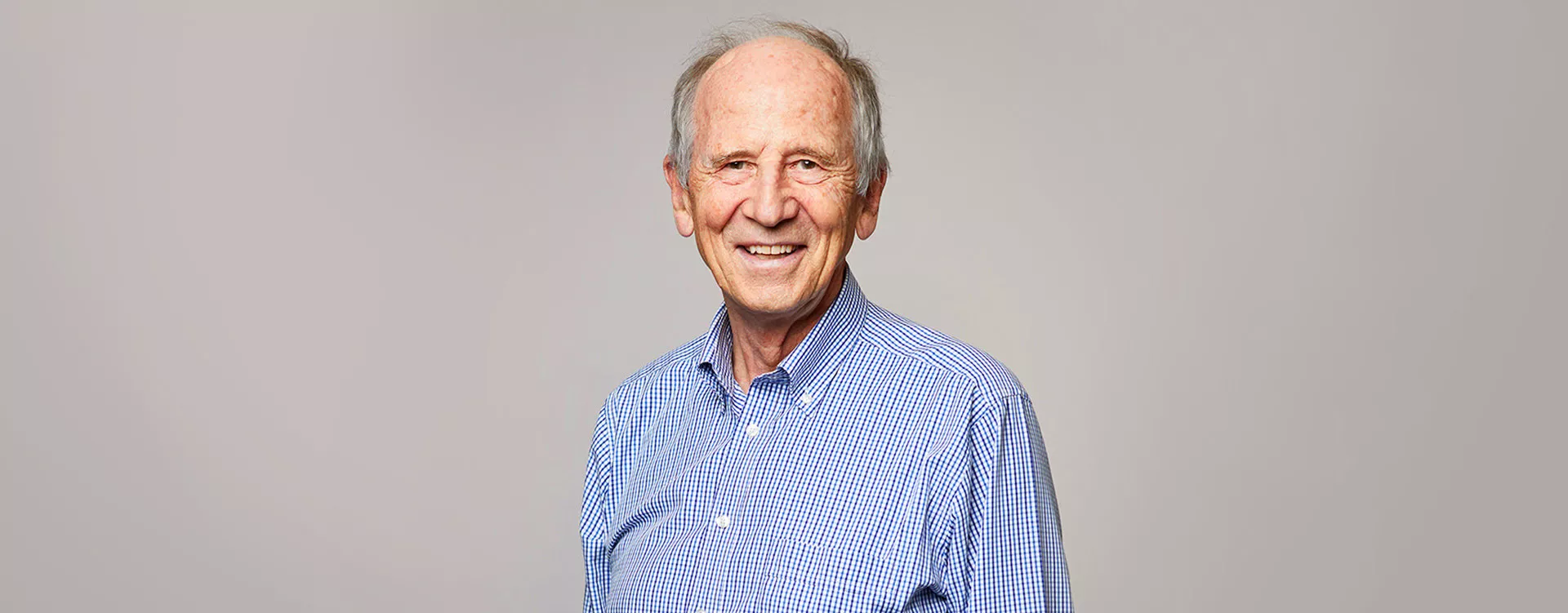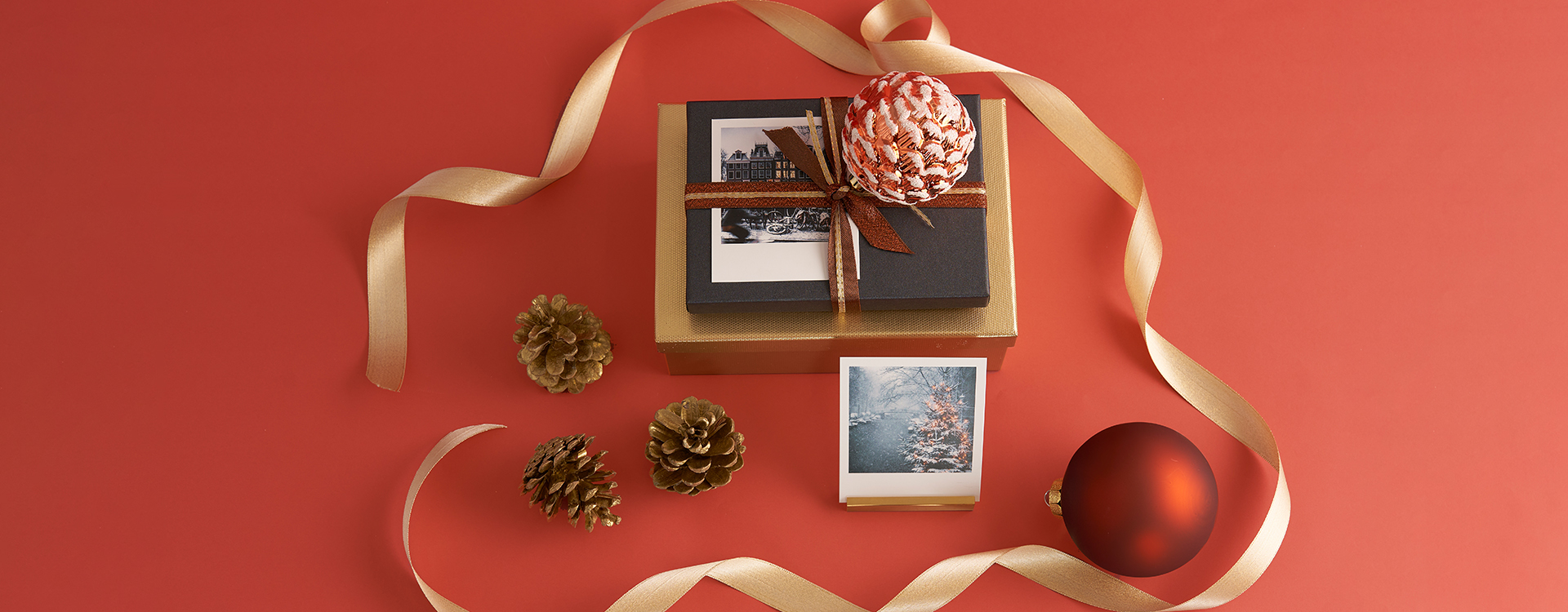Learned profession?
4-year training as a bookbinder in Neuchâtel. Afterwards 4 years of travelling and journeyman’s years in Paris, London and Rome. In addition, 4 years of training as a business economist.
Profession?
Bookbinder and managing director of the Burkhardt bookbindery from 1969 to 2005.
Read or watch?
Watching. (Pictures!)
Portrait or landscape format?
Reading: Portrait
Watch: Landscape format
Where do you like to read most?
Sitting at a table. Certainly not lying down, not on the beach and not in bed.
What’s your favorite way to read?
Honestly, I don’t read a whole book a year. I read about two hours a day – mostly newspapers and magazines.
To read you need concentration. I find that, for example, during a train journey, because then I have a designated time just for myself. When I read, I prefer to be alone or in peace.
Do you know how many books you own?
Of course I don’t know.
Very many. Very, very many.
Here’s an estimate in order. First, I keep my collection separate, professionally and personally.
Every single book produced in the company goes over my desk and is checked for defects or its specificity. I do not read these books, I only get an impression of what the content is about. Some books I look at for only 2 seconds – others maybe 30. The special ones (about 20 titles are produced weekly) are added to the collection: the so-called Bindorama. There – placed in the reception area – there are currently about 2000 books. Not only some of the books that we have produced here, but also many bookbinding interesting specimens that I continuously discover and bring back on my travels. The content is almost irrelevant to me. I am fascinated by the book as an object – I enjoy the extraordinary. I love it when a book makes the seemingly impossible possible. For me, a book is not just an industrial product – it is a cultural asset.
Can you name three favourite books?
I have looked at countless books over the years. I can hardly answer this question. I have an honest and internalized fascination for books. Every other book in the Bindorama is my favourite. I enjoy the beautiful and I enjoy the special. And I think this is contagious.
I also have to make a distinction between the content and the binding of my favourite books. As a young man I read the story “Narcissus and Goldmund” by Hermann Hesse a little bit three times because it fascinated me so much. Apart from that I love funny and weird books. And books by artists.
If you could only own one book, what would it be?
The Book of Kells. – A facsimile. We spent 10 years here, making 1500 of them by hand.
Do they travel with books? If so, how many?
Yes, about five books. Besides, I always carry a diary when I travel.
Do you own an Ipad or Kindle?
Yes I have an iPad. I read the newspaper in it, but only during holidays or when travelling. And I use it to send e-mails. I can always and best be reached by e-mail and usually answer within a few hours. I find it a very precise and clear means of communication.
What are your hobbies?
Here I must confess that work is my hobby. Although I must also put the word “work” in quotation marks. Because what does “work” mean? “Work” can be anything: Gardening, laundry, daily chores and so on. I like projects: there is a beginning, a course, a conclusion and I can turn to something new afterwards.
About 15 years ago – when Thomas Freitag took over the bookbinding business – I had to learn to give my life a new content: to shift my attention to something other than business. That was not easy. For 38 years, I only went on holiday twice a year: one week in winter, two weeks in summer. Besides my wife and family, business was my life. So I started to travel a lot more, to get away from the business and get away from it. Since then I have been taking part regularly in “Long Distance Oldtimer Rallyes”. This activity could also fascinate me outside of my business. I now run the CCE (Classic Car Event) association and we regularly drive for 2 months with old cars on different routes around the world. In 2007, for example, I drove a 1965 Volvo 122 S from Beijing to Paris. Last time we were at the North Cape. The rallies are never about speed, but always about the experience on the way. There are also shorter rallies of three to four days, where you have to complete various stages. I just like to do and design different things. I have too many ideas – I like to surround myself with people. I go sailing, skiing, hiking, photography and all those things. Maybe I have to learn to do nothing and hold on to my table, but I’m afraid I can’t. Last but not least I enjoy the time with my family and friends.
What do you love about Switzerland? Do you have a favourite place?
Besides the mountains: our home. We have a lot of light in the house and I have cosy corners where I feel really comfortable.
How do you imagine the future?
I think that each generation will have to solve its own problems. One aspect that I look forward to with concern is the environmental factor. We humans need to develop a greater awareness of sustainability and resource use. We have to learn to care more about the climate, the environment, food and air. The world should not be overused. At this point I am afraid for the following generations and that the destruction of the world will be irreversible at a certain point.
The fact is that people in the world are constantly beating their brains in. You would think that we have learned something from the past, but we haven’t. The most important task for every generation should be to provide peace and enough food. At the end of the day, human beings are always just human beings. But I believe that when the suffering is great enough, means are always developed to correct the wrong things for the better.
Basically I am a person who lives very much in the present, pragmatically and with a lot of strength for the positive. I don’t understand much about the new technologies and I can’t really imagine where they will lead humanity. But I am open for what may come.
Can you name a high point and a low point of your company?
I’m glad you asked. There was actually a phase in my life, or rather in Bubu’s life, in which I no longer wanted to believe in the future. That was in the year 1994 / 95. There was less and less to do here at that time and that put me under cruel pressure. At some point I no longer wanted to believe in the product book and thought that it had become pointless and useless to produce books. I still remember very clearly that one day in the canteen when I had to tell my employees that we were introducing short-time working. That was a terrible moment in my life. I felt personally responsible for every single person in the company. (At that time about 100 employees.)
A high point came 10 years later in 2004, when we introduced the photo book in our company and founded the Bookfactory. From that moment on I felt it again: the hope and belief that there is a way for us.
At the moment I feel very lucky that I can still come here every morning, that I can follow everything and be there when something new happens. I just love being in the middle of the action too much and enjoy the pressure of being busy. I can’t stand it when the machines stop.





